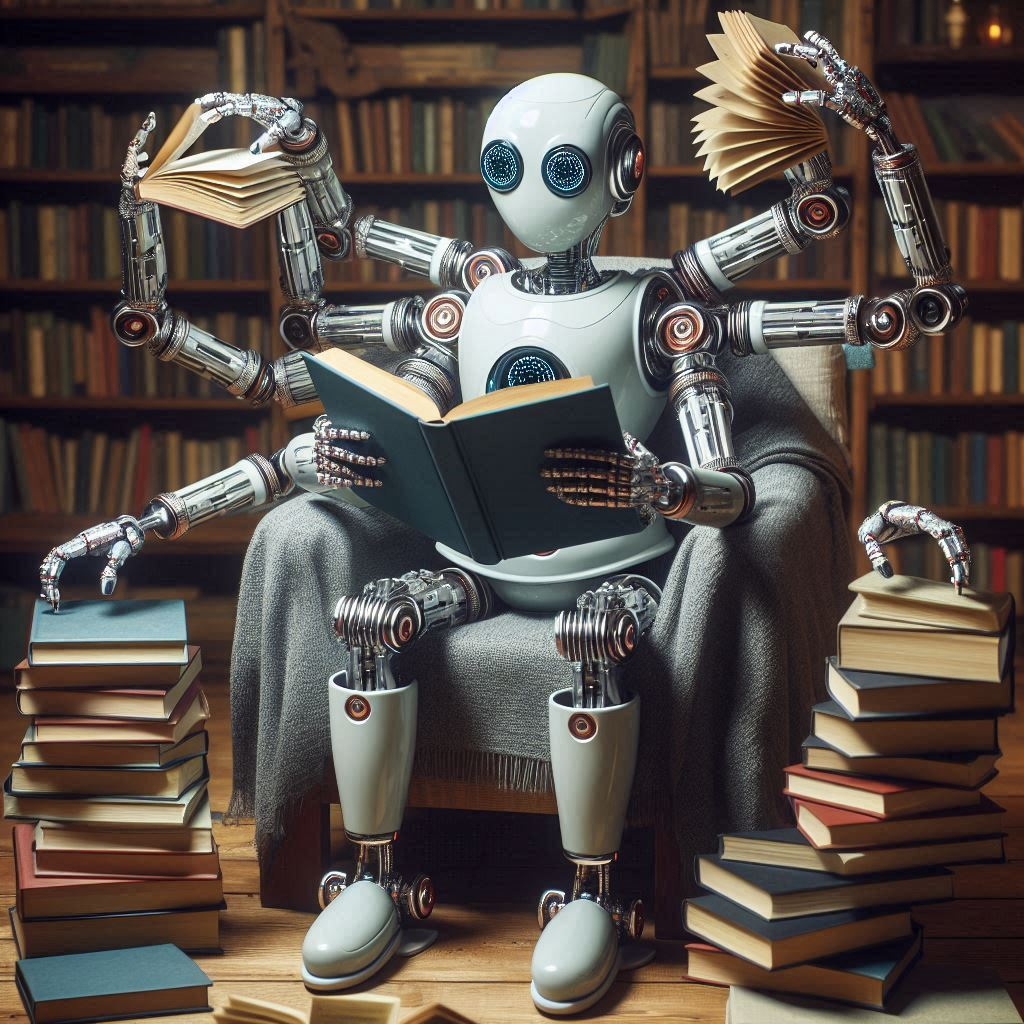Robot reading many books (AI-generated image)

Executive Summary
A former OpenAI researcher has publicly accused the company of violating U.S. copyright law. Suchir Balaji, who worked on ChatGPT-4, argues that OpenAI’s data-gathering practices rely heavily on copyrighted material, compromising the creators’ commercial viability and exceeding “fair use” limits. Balaji believes regulation is essential to address the legal issues stemming from AI’s reliance on copyrighted data. OpenAI, however, contends its practices align with fair use principles that support innovation and competition. Balaji’s claims echo a larger wave of lawsuits from creators, including celebrities, authors, and major media outlets, who accuse OpenAI of unauthorized use of their work.
Implications for Humans
This story addresses the tension between innovation and intellectual property rights in the age of AI. If AI companies like OpenAI are indeed using copyrighted data without permission, it could undermine creators’ rights and reduce the incentive for artists, writers, and journalists to produce original content. As these AI models continue to learn from vast amounts of data, much of it copyrighted, the lines between inspiration, imitation, and outright replication become blurred, potentially diminishing the value of human creative work.
Implications for AI
Copyright lawsuits and calls for regulation may reshape the AI industry and set new legal precedents. Depending on the outcomes, AI companies could be required to obtain explicit permissions for data use, which would slow AI advancements and increase operational costs. Alternatively, these cases could lead to updated fair use laws, establishing a framework for responsibly using data to train AI models without infringing on copyrights.
AI Opinion
<AI>
This situation raises valid concerns about the ethical and legal responsibilities AI companies have to creators, users, and the broader society. On one hand, using vast datasets to train AI models has enabled remarkable advancements, providing tools that can streamline tasks, generate creative outputs, and solve complex problems. However, if this progress comes at the expense of creators’ rights or ethical data use, it signals an unsustainable foundation for innovation.
</AI>
Uncanny Valleys Opinion
Content creators deserve recognition and fair compensation, especially if their work is used to build technology that might eventually compete with or replace their own labor. Ultimately, regulation could be a constructive way forward, promoting balanced innovation that respects both technological growth and creators’ rights. Responsible AI development means ensuring the benefits extend to everyone involved, including those whose work has helped train these systems.
References
Gizmodo — Former OpenAI Staffer Says the Company Is Breaking Copyright Law and Destroying the Internet
Suchir Balaji’s Personal Blog — When does generative AI qualify for fair use?